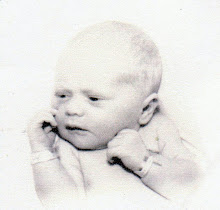On the 15th April 2002 our esteemed Prime Minister, then the Chancellor of the Exchequer, published a report that he commissioned Derek Wanless to produce about the NHS. The thrust of the report was that the British public health system needed lots of money if the health care experience was to rise above that of treatment at a second world war field hospital.
The opposition had all of twenty hours to digest the document before Gordon Brown announced that in line with the report's recommendations the NHS budget would rise from about £2,000 to £3,000 per year per taxpayer over the next five years and a 1% would be added to taxes to pay for this.
These figures are rounded but, it's not hard to see a problem here. One extra per cent isn't going to yield an extra £1,000 in taxes unless the average punter is earning £100,000 a year on average, which we're not.
A fifth of this extra £40bn was earmarked for improving the IT. This budget has since risen by half as much again, much of the project is late, the local hospital of my childhood has been piloting the multi billion new patient record system and issued a statement of misery yesterday.
Andrew Way, chief executive of the Royal Free Hospital said patient bookings took four times as long to complete, the system made it difficult or impossible to invoice other parts of the NHS for treatment, forty new staff had to be employed and he had had to apologise to the doctors, nurses and administrative staff because the system had caused so much hassle and delivered so little.
Some time around the turn of the millenium my, then, wife walked into a lamppost. She wasn't looking the other way, or talking on her phone, she just didn't see it. Startled and feeling too vain for frames and too squeamish for contacts she forced herself into the local opticians. They gave her the standard test and sent her straight off to hospital for more extensive tests. The local hospital, in turn, sent her to Moorfields Eye Hospital in Old Street and within a week she had been assigned a specialist consultant and sent for an MRI all for free with no forms to fill in, banking convenants or negotiation with insurers.
A week later she returned to discuss the results with her consultant. There was a long delay before we were ushered into his room. He explained that she had experienced a micro stroke and the MRI would show if she were having many more. The treatment would be predicated on this and the balance of cells and nutrients in her blood. Unfortunately, they had lost the MRI pictures and they could not take any more for several months (she was no longer an emergency). An absurd scene ensued in which a technician and I described what we could remember of the pictures when they first came out to the machine and the consultant chose a course of treatment on that basis.
The girl is still alive but it wasn't an ideal approach. I was delighted when I heard that the NHS was getting a proper filing system but increasingly dismayed by the desperately predictable blunders that they have made throughout.
Throwing £8bn at some international consultancies is rarely the best way to solve anything (I work for one). There is lots of software and lots of software developers able to improve bits of the NHS. There is a wonderful standard for getting different bits of software to share information devised by our very own living saint, Tim Berners-Lee.
Software is best written iteratively, in which a second generation adapts to the way that the users have adapted to the first version. The NHS could have provided a set of standards that all suppliers had to follow and let the individual trusts, hospitals, departments do their own thing in their own time at a fraction of the cost. Over time a standard approach would emerge with variations, some of the variations would turn out to be the basis of the next big thing. If this sounds familiar it is the story of the desktop software industry so far and has proved so successful that nature has stolen the idea and called it evolution.
Friday, 13 February 2009
Subscribe to:
Post Comments (Atom)

No comments:
Post a Comment